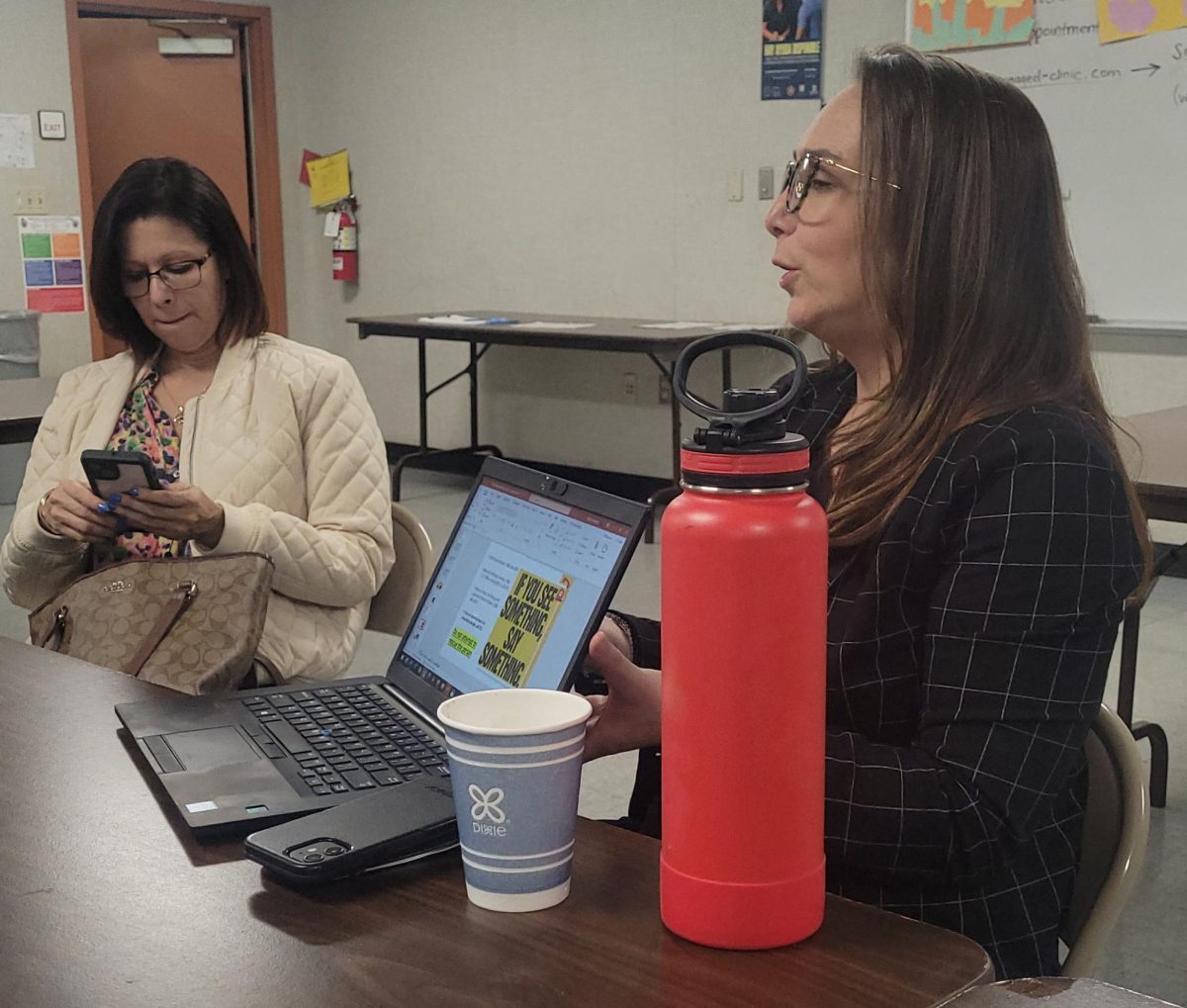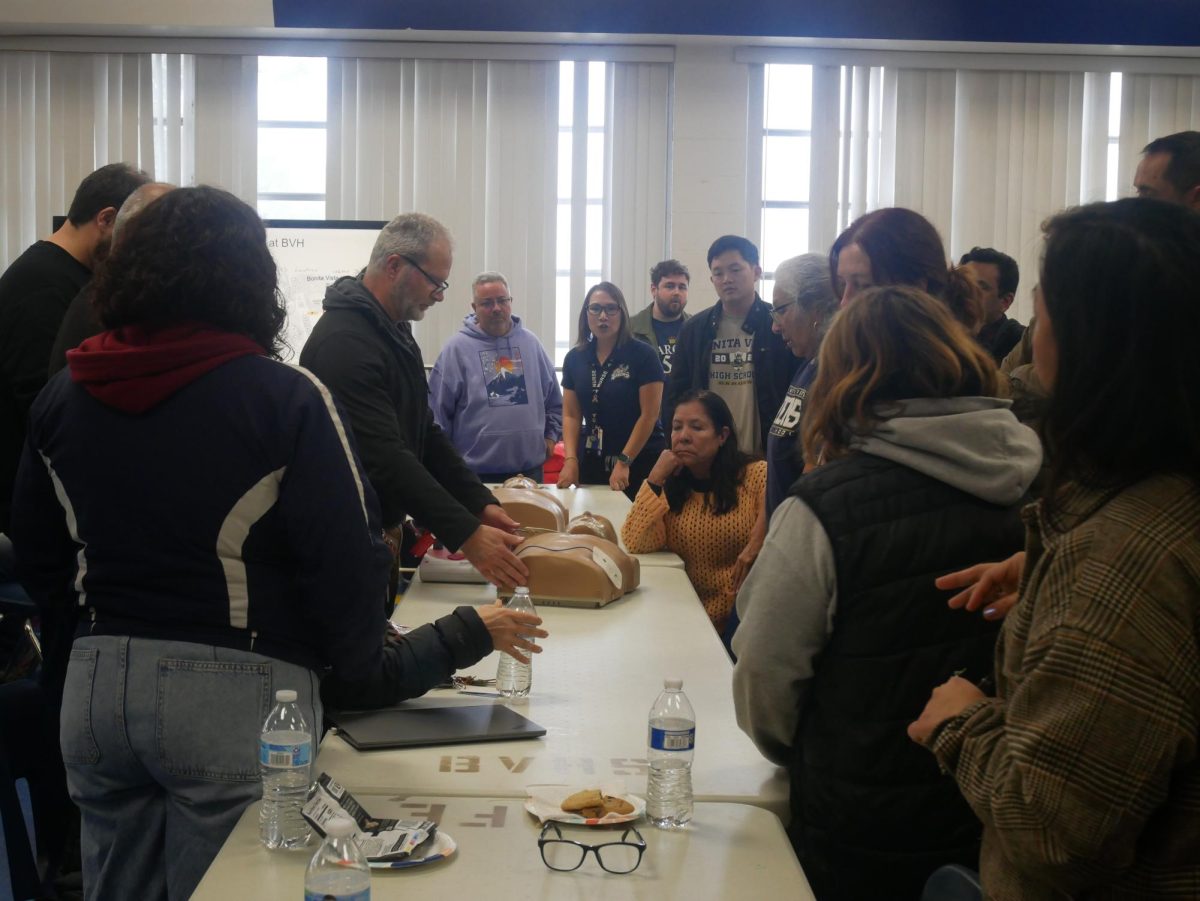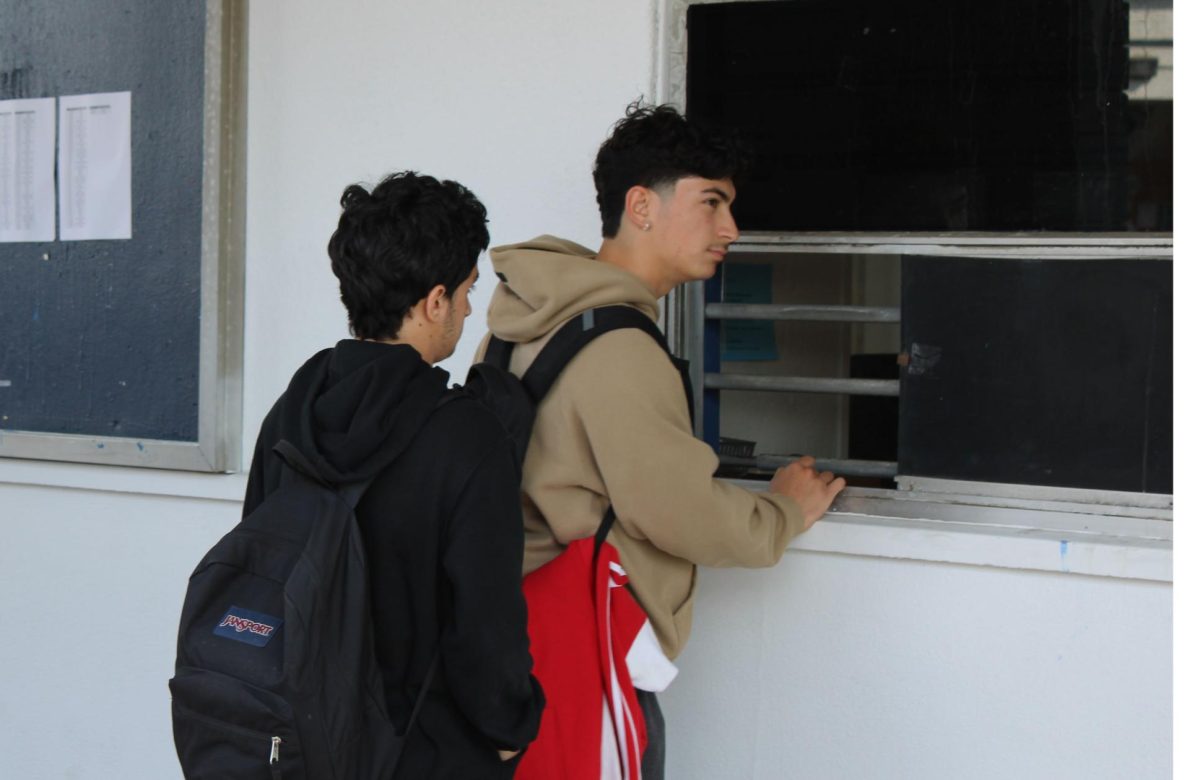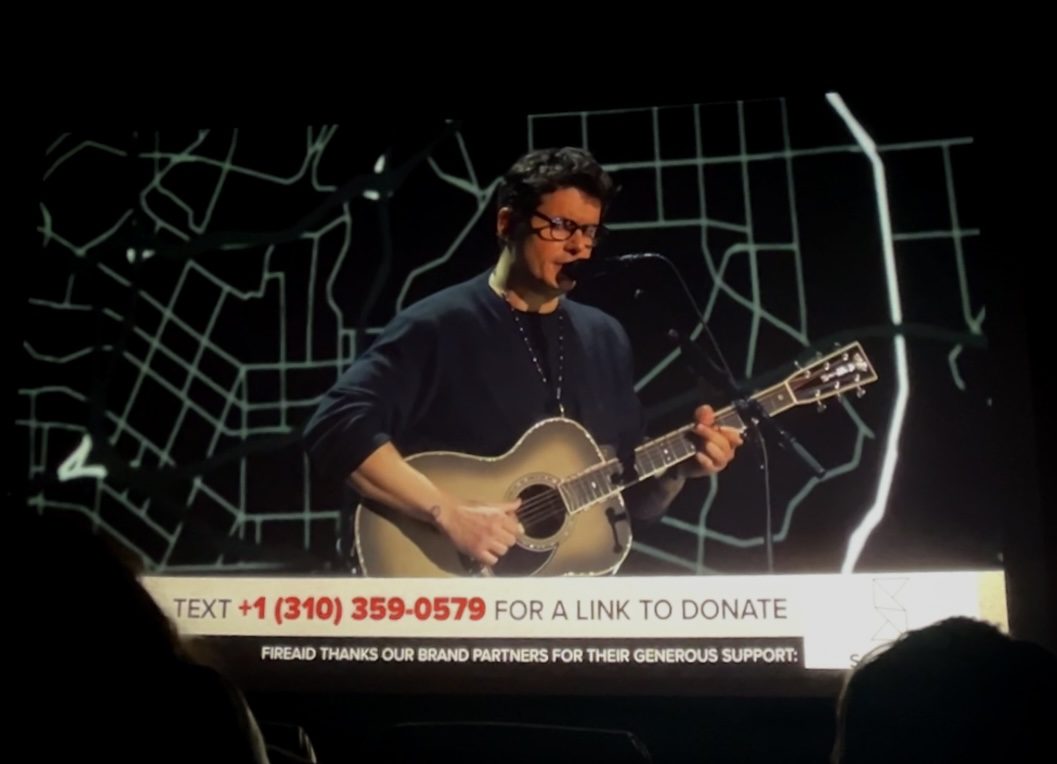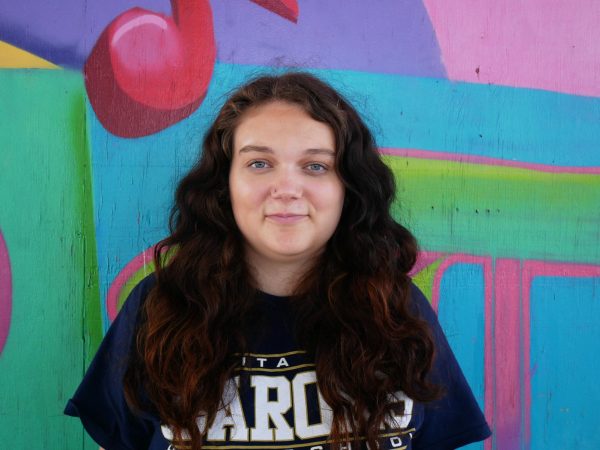Bonita Vista High (BVH) students and parents received a Jupiter grades message inviting them to the “Coffee with the Community” event which took place on Nov. 9 at the Rice Elementary School new directions family resource center. The event was passionately driven by community partnership and prosecutor Monique Myers, the event saw a turnout of five attendees. The significance of the event and the urgent need to amplify its impact cannot be understated. Myers made a statement on what this event would be covering and why.
“The objectives of the entire series, [with] sex trafficking being one of the topics, is to empower the community on how to prevent this from happening. [It also helps educate] on [whether] it should be happening in their community, [how] to be able to identify it and then know what to do about it,” Myers said.
Myers, a dedicated advocate in the fight against sex trafficking, is fervently working to draw more individuals into this critical conversation. Addressing the stark realities of manipulation and the psychological toll endured by victims of trafficking, the event serves as a platform to shed light on the initial stages that often go unnoticed. Myers mentions an emotional case from the past that sparked her realization on how manipulated and psychologically attacked people are after sex trafficking.
“A case I had a while back, about five years ago, was this young girl who I got out of that bad situation of sex trafficking. I had seen her working at the subway and she came up to me, she said ‘Did you know that we have to pay taxes?’ and I knew right then she was going to end up going back,” Myers said.
In the quiet confines of a relationship, what may start as a seemingly innocuous bond between a boyfriend and girlfriend can subtly transform into something sinister. The insidious progression from the guise of a “sugar daddy or pimp” providing gifts and luxuries to the gradual depletion of financial resources is a harrowing journey into exploitation.
“It starts off as gifts like a new phone, a new car, makeup and then they blame their low finances on that person expecting them to make the money back through exploitation [sex trafficking],” Myers said.
The trajectory takes a darker turn when the supposed benefactor claims financial depletion due to the partner’s alleged extravagant spending. The victim is then subtly persuaded with a manipulative proposition. This initial compromise burgeons into a frequent occurrence, a secret burden that devours the victim’s agency and dignity. Navigating a sensitive subject, Myers delicately broached the topic, recognizing the challenges faced by some in tough situations.
“The trafficker will say ‘I just had a strange idea. I heard of this thing where you can have sex and get money from it, it could be a one-time thing to make enough to get back on our feet then we will never speak of it again,” Myers said.
The manipulative tactics employed in these situations are often veiled, ensnaring victims in a web of dependency and fear. It’s a narrative that starts as an isolated incident but tragically unfolds into a recurring cycle of exploitation and coercion. Transitioning into Myers’ perspective, the discussion shifted to the post-trafficking considerations.
“After being trafficked, many victims think about going back to that life because of the full paychecks and reduction of taxes. They never really understood working and the government taking their paycheck,” Myers said.
Equally disheartening is the ripple effect these experiences can have within social circles. Victims, influenced by the false allure of material possessions and an illusion of a lavish lifestyle, may inadvertently become proponents of their trafficker. The normalization of exploitation spreads when victims, lured by the apparent benefits, unknowingly recruit their friends into this dark web of manipulation. Earth Science teacher and BVH librarian Adrienne Marriot believes BVH should have better protocols for this type of situation.
“I think that it makes absolute sense to have protocols for sex trafficking in schools because you have to be safe in order to be an effective student, so we should think about that,” Marriot said.
The stark reality portrayed at the “Coffee with the Community” event serves as a wake-up call to the importance of understanding the early warning signs of exploitation and manipulation. It underscores the urgent need for a collective effort to prevent the expansion of trafficking narratives and the imperative to create a safe space for those susceptible to manipulation.
“The idea behind ‘Coffee with the Community’ is really to create a safe space to learn about different crime prevention topics that are of interest to the community. Coming to the community to provide them with information and resources,” Myers said.
The organizer, driven by the urgency of this cause, emphasizes the critical need for a larger audience at these events. More voices and perspectives are vital in igniting a proactive dialogue, raising awareness, and fostering a united front against the growing threat of sex trafficking.
“Maybe the long-term impact of today’s presentation is that whoever attends this shares. They are important because we need more people to be aware of what sex trafficking looks like because that is the only way that we will be able to eradicate it if more people see it and then share that information with law enforcement,” Myers said.
Myers passionately sheds light on a distressing fact: girls that are younger than 15 are falling victim to trafficking right in our local area. This revelation starkly underscores the critical and urgent nature of the issue.
“A study found that the average age [to be human trafficked] was 15 and a half but we have seen more and more younger children being rescued by the human trafficking task force,” Myers said.
Trafficking, especially when it involves minors, represents a grave violation of human rights and a profound threat to the safety and well-being of the most vulnerable in our society. Young girls face unimaginable risks and endure lasting trauma that profoundly impacts their lives. Many do not know what to do in these situations because of the lack of protocol. BVH student junior Soleil Perez feels very upset at the lack of awareness that this issue has received.
“Having a clear protocol would make a huge difference. It would mean knowing there is a set way to handle things, a clear path to follow if we suspect something is wrong. It would mean feeling supported and knowing that the school cares about our safety. It would give us the confidence to speak up and the reassurance that something would be done to help,” Perez said.
Furthermore, this disclosure emphasizes the critical need for education and outreach programs specifically tailored to inform and empower both the young potential victims and the broader community. Creating a supportive environment where individuals feel safe to speak up, and seek the gravity of this revelation serves as a stark reminder that the fight against trafficking demands a multifaceted approach, one that not only focuses on rescue and rehabilitation but also places significant emphasis on prevention and protection.
“We need more people to be aware of what sex trafficking looks like because that is the only way that we will be able to eradicate it and share that information with law enforcement. Otherwise, it continues to happen on our streets in hindsight and people are just turning a blind eye to it or they see it but they don’t know what they’re looking for,” Myers said.

